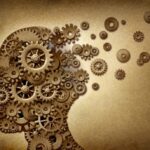Most people will say there are 7 stages of dementia. But that doesn’t tell the full story.
In this article we’ll take a closer look at the stages of dementia. We start by looking at what dementia really is, 3 vs 7 stages of dementia and also link to answers to some commonly asked questions.
What Is Dementia?
Dementia is not a specific disease. It is a term used to describe a set of related symptoms.
These symptoms involve the loss of brain functions. Commonly this includes memory, thinking and reasoning/logic. In later stages dementia will impact a person’s ability to walk, communicate and take care of themselves.
Forms of Dementia
There are few common forms of dementia. The most common is Alzheimer’s disease. Up to 80% of dementia cases are due to Alzheimer’s.
The other main forms of dementia are Lewy Body Dementia, Vascular Dementia, Parkinson’s disease and Frontotemporal dementia.
Stages of Dementia
Different people experience dementia differently. The symptoms people experience vary from person to person. As does how severe each symptom is.
How long each stage lasts is also different for everyone. Sometimes a stage can last for years. Other times it can progress much more quickly.
3 Stages of Dementia
While it’s common for dementia to be broken down into 7 stages, sometimes it’s broken down into 3 stages.
These stages are Early Stage dementia, Middle Stage dementia and Late Stage dementia.
Early stage dementia is when symptoms are mild. A person can typically go about their daily routine with little disruption due to dementia.
In this early stage, the most common issues are simple memory lapses. This could simply be forgetting names or words. It could also involve losing/misplacing things often. In this stage some people may also have issues with poor judgement or with planning/organizing.
It’s important to note that these symptoms do NOT necessarily mean someone has dementia. There are other reasons someone can experience memory loss in the normal process of aging.
Symptoms get worse in Middle Stage dementia. This stage is commonly the longest of the stages, lasting for years in many cases.
During this stage, a person will need increased help in their daily lives. Many of the symptoms described for Early Stage dementia will wrosen.
In addition, people may experience confusion about events and times. They may also need help remembering to bathe or picking out the right clothes to wear for the season.
It’s in the Middle Stage where there’s an increased risk of the person forgetting where they are and getting lost. They may also experience mood swings as well as paranoia and delusions.
In the Late Stage of dementia, a person may become unable to care for themselves at all. At this stage, 24/7 care becomes necessary.
Communications becomes very difficult at this stage. As things progress, they’ll also experience loss of physical abilities like walking and swallowing.
Severe memory loss is also common in this stage. A person may forget where they are and forget the names of even their closest loved ones.
There is also an increased risk that they develop other illnesses at this stage.
Understanding the Stages of Dementia
It’s important to understand the stages of dementia. It can help you prepare for what’s coming next. It can also help you better develop a care plan to make things as comfortable as possible for your loved one.
Common Questions About the 7 Stages of Dementia
The above is just a brief overview about the stages of dementia. We have put together a guide to help answer some of the most common questions people have about the dementia and its stages. You can find the answers to these questions using the links here:
For a more in-depth overview of the 7 stages of dementia, read this article.
You can read about the 7 stages of lewy body dementia here.
Another common type of dementia is vascular dementia. Learn about the 7 stages of this disease here.
This article covers the final stages of dementia and contains some controversial advice from a memory care nurse that many people need to hear.




